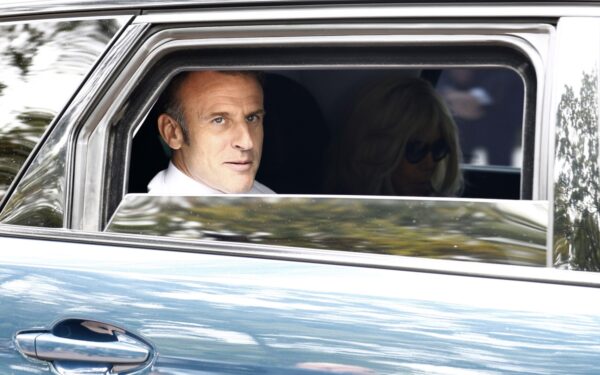Here at Reaction, we welcome robust debate. Even if it comes within our own editorial team.
And I just couldn’t quite get on board with my colleague Olivia’s article, “Three cheers for Catherine Deneuve and the French revolution against #metoo”.
Olivia writes: “It’s stimulating to see a classical French perspective on sexual politics after months of having American notions of female ‘empowerment’ shoved down our throats, and it’s refreshing to remember that those in the entertainment industry don’t all buy in to Hollywood’s puritanical virtue signalling.”
“It seems that the French are finally recovering a confidence in their cultural identity which has been hidden for several decades.”
And I agree that it is important, both for the West and for ‘le monde entier’, that the French lend their distinctive voice to international affairs.
The West is indeed more than the increasingly shallow celebrity culture which continues to emerge from America’s Western and Eastern sea-boards.
Enemies of Western-style liberalism – whether it’s the acolytes of the Westboro Baptist church or neo-fundamentalist Jihadists – are ever ready to remind us that the price of individual freedom is a loss of value for all, a culture of vapidity.
With the West in crisis, a new Nero with his finger hovering over the nuclear button, and a hapless Prime Minister here in the UK, we desperately need a ‘thicker’ conception of Western influence, that creates the West as a symbol of value pluralism, religious tolerance … that gives us the moral platform from which to counter the new and virulent nationalisms resurgent in Eastern Europe, Russia and China.
But don’t expect it to find it in this letter.
This letter says much more about France’s culture wars than it does about sexual assault and harassment. And there is nothing liberal about this letter. It is a manifestation of an aggressive secularism that is peculiarly French, and extremely intolerant.
Consider these excerpts from the letter:
“This feverish enthusiasm for sending ‘pigs’ to the slaughter, far from helping women become more autonomous, actually serves the interests of the enemies of sexual freedom, religious extremists, the worst types of reactionary, and those who consider – in the name of a particular notion of ‘good’ and its associated ideas of Victorian morality – that women are ‘beings apart’: children with adult faces begging for protection.”
It all sounds a bit odd. Religious extremists? The worst types of reactionary?
And there is more:
“It is in the nature of Puritanism – citing the ‘general good’ – to twist conventional arguments in favour of women’s protection and emancipation in order all the better to chain women to the status of eternal victims: ‘poor wee things’ in the grip of demon phallocrats, just like in the good old days of witchcraft.”
Demon phallocrats? Witchcraft?
References to ‘the enemies of sexual freedom’, along with ‘religious extremists’, place this letter in a tradition of aggressive and intolerant laicity that has poisoned Arab-French relations.
The language of the letter is identical to the kind of arguments advanced in favour of a new intolerance towards France’s Muslim minority.
France’s national identity comes in part from a revolutionary spectacle that aimed itself explicitly against the Catholic Ancien Régime. And for all its zeal for liberty and emancipation, this ideal of freedom carries with it a vicious streak of intolerance.
Modern France is haunted by the victims of its troubled past: the ghost of Dreyfus, the victims of mid-century colonial atrocity in North Africa, and the mounting dead in the banlieues.
In 2011, France’s move to ban the burqa and the veil were framed as a defence of female empowerment: Manuel Valls, the then minister of the interior, said: “there needs to be more coherence in regards to the veil … in favour of a secularism that emancipates women.”
In the UK, we rightly balk at this kind of intolerance. Calls to ban the veil have so far met with limited public support, and vocal moral censure. Real tolerance means tolerance not only of indigenous practices and beliefs, religious or secular, but a concerted acceptance of non-majority cultures.
We do get a particular French view; but it reflects the contradictions of modern France, a France unable to integrate its religious minorities into an aggressively secular dominant culture.
France is irreplaceable and the West needs its voice – strong and eloquent and stylish as it is – more than ever.
But the West also needs a strong and robust conception of religious tolerance hard wired into its politics – and on this and other recent evidence, we will need to look beyond France to find it.



